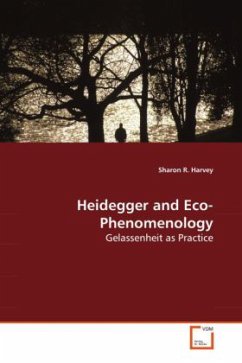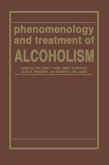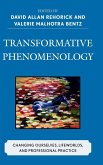An assessment of Martin Heidegger''s notion of
releasement (Gelassenheit) is essential due to
former misconceptions concerning its applicability
for environmental ethics. Recent material on
Heidegger is bringing new interest in the practical
applicability of Gelassenheit for eco-
phenomenology. This book examines the claims of
secondary literature, both positive and negative,
and compares that with Heidegger''s Gelassenheit
(1959), translated as Discourse on Thinking.
Gelassenheit, when viewed as a process rather than
static, holds resources for environmental
responsibility. Heidegger''s Gelassenheit gives us
another understanding of our relation to nature, a
self-emerging relation that is non-objectified.
Gelassenheit offers the field of eco-phenomenology
an ethic that goes beyond the subject-object
dualism, a non instrumental ethic that holds
potential for how to treat nature in the
technological world in which we live. This book is
addressed to Heidegger scholars, environmental
ethicists, eco-phenomenologists, environmental
scientists, environmental studies scholars, and
continental philosophers.
releasement (Gelassenheit) is essential due to
former misconceptions concerning its applicability
for environmental ethics. Recent material on
Heidegger is bringing new interest in the practical
applicability of Gelassenheit for eco-
phenomenology. This book examines the claims of
secondary literature, both positive and negative,
and compares that with Heidegger''s Gelassenheit
(1959), translated as Discourse on Thinking.
Gelassenheit, when viewed as a process rather than
static, holds resources for environmental
responsibility. Heidegger''s Gelassenheit gives us
another understanding of our relation to nature, a
self-emerging relation that is non-objectified.
Gelassenheit offers the field of eco-phenomenology
an ethic that goes beyond the subject-object
dualism, a non instrumental ethic that holds
potential for how to treat nature in the
technological world in which we live. This book is
addressed to Heidegger scholars, environmental
ethicists, eco-phenomenologists, environmental
scientists, environmental studies scholars, and
continental philosophers.








